Are Meteor Showers Dangerous? What You Need To Know!
Last Updated on
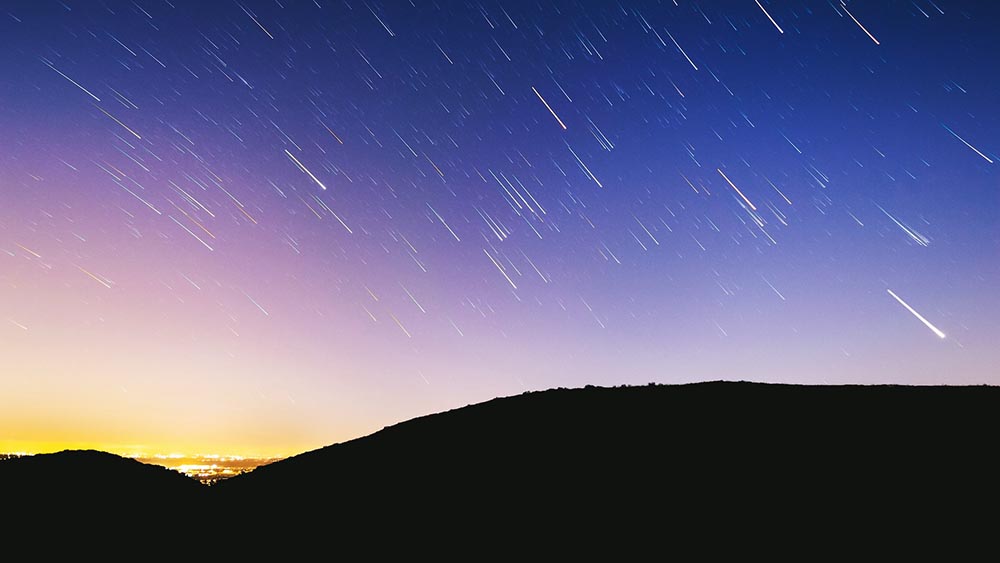
We’ve all seen at least one meteor, which many call a “shooting star.” Of course, meteors aren’t stars but small meteoroids that enter Earth’s atmosphere and then burn up. Occasionally, a meteor shower is seen when multiple meteoroids enter Earth’s atmosphere at once. The question many have about meteors showers, not surprisingly, is, are they dangerous? The answer is no. Meteor showers are not dangerous. It’s very rare for a meteoroid to hit the ground since most burn up in the atmosphere before they have the chance. Even if they did, the odds of a meteor actually hitting you are infinitesimally small.

What Causes a Meteor Shower?
Meteor showers occur when our planet passes through a debris field created by an asteroid or a comet. This debris is typically made up of varying-sized rocks, called meteoroids. As the Earth passes through the debris field, many meteoroids get caught in our atmosphere and pulled in. At that point, their name changes to a meteor. Most meteor showers rain down 25 to 100 meteors every hour, an incredible sight if you’re a lucky witness to the show.
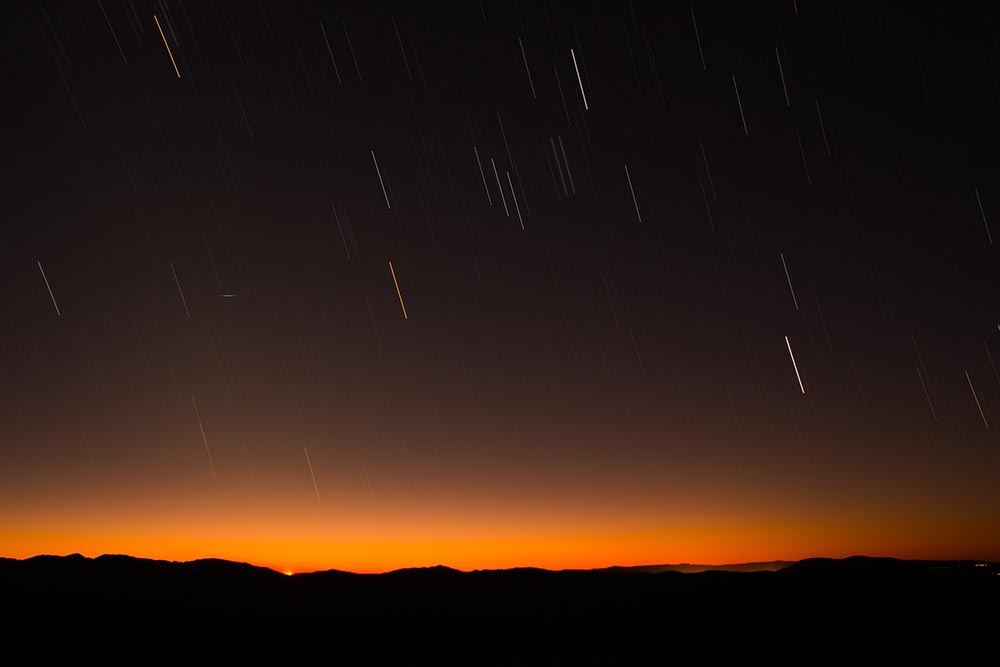
How Many Meteors Fall Onto Earth Every Day?
While it’s impossible to know how many meteors fall onto the Earth every day, scientists estimate that over 48 tons (96,000 pounds or 44,000 kilograms) enter the atmosphere. However, few make it to the ground intact. It is estimated that about 17 meteors hit the Earth’s surface every day or about 6100 a year. Most, however, fall in areas where they are unseen. However, one of the rare meteors that people noticed was in February of 2017 in Cuba. That’s when a meteor the size of a large car exploded over the city of Viñales, Cuba, raining down rocks all over the village. Nobody, thank goodness, was hurt.
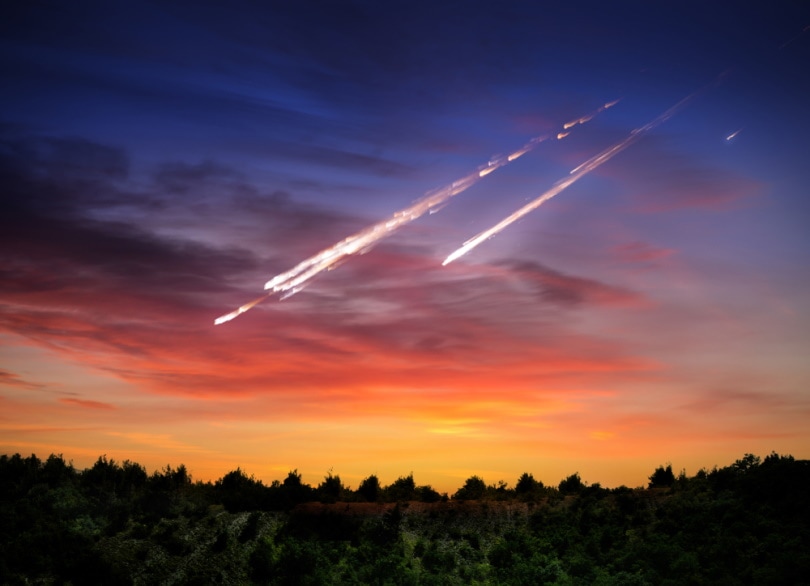
Do Meteor Showers Have Names?
Meteor showers do have names, although the same name is used every time the shower repeats itself. Typically, the name of any particular meteor shower comes from the closest constellation to where the shower occurs. Several meteor showers occur at almost the same time every year, making it easier to spot them. Below is a list of the nine most famous (and impressive) meteor showers. Note that the term “ZHR” stands for Zenithal Hourly Rate, aka the number of meteors that fall in an hour (approximately) during a particular shower.
| Meteor Shower | Date (Approximate) | ZHR |
| Quadrantids | January 3 | 120 |
| Lyrids | April 22 | 18 |
| Eta Aquarids | My 5 | 60 |
| Southern Delta Aquarids | July 30 | 20 |
| Perseids | August 12 | 100 |
| Orionids | October 21 | 23 |
| Leonids | November 18 | 15 |
| Geminids | December 14 | 120 |
| Ursids | December 22 | 10 |
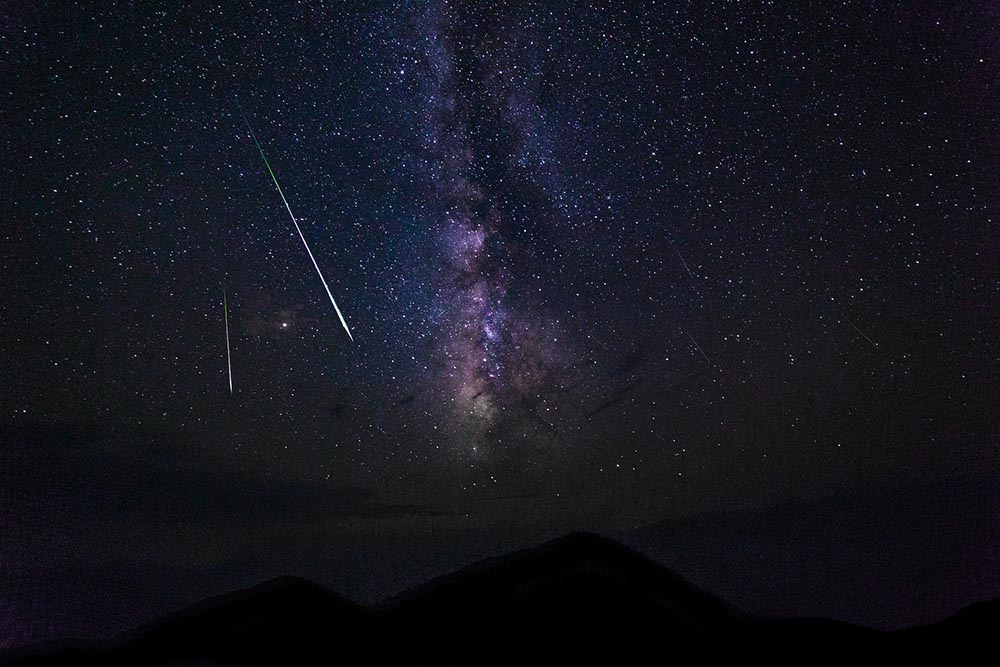
What Is the Most Dangerous Meteor Shower?
As we mentioned, meteor showers are caused by the debris field of an asteroid or comet. One of the most famous comets in our solar system, Swift-Tuttle, is the source of the Perseids meteor shower every August. Swift-Tuttle takes 133 years to orbit the sun, and, unfortunately, its orbit takes it right through Earth’s orbit.
The Swift-Tuttle comet also happens to be one of the biggest comets in our neck of the solar system. It’s about 16 miles (about 26 kilometers) in diameter, which is huge for a comet. If it were to hit the Earth, it would do more damage than the comet that killed the dinosaurs! That’s likely why scientists have dubbed the Swift-Tuttle comet “one of the most dangerous objects in [our] solar system.” The good news? Swift-Tuttle isn’t due to come back Earth’s way for more than a century, in 2126.

Can Meteors Damage Your Home and Property?
As we mentioned at the beginning of this article, meteor showers aren’t dangerous. The chance of being hit by a meteor is incredibly small. Many people worry about a meteor hitting their home or property and causing significant damage. The good news is that meteors hitting homes and property are just as rare as hitting people. You can use this meteor impact chances calculator to find out your chances in an instant.
Meteors, Meteoroids, and Meteorites. What’s the Difference?
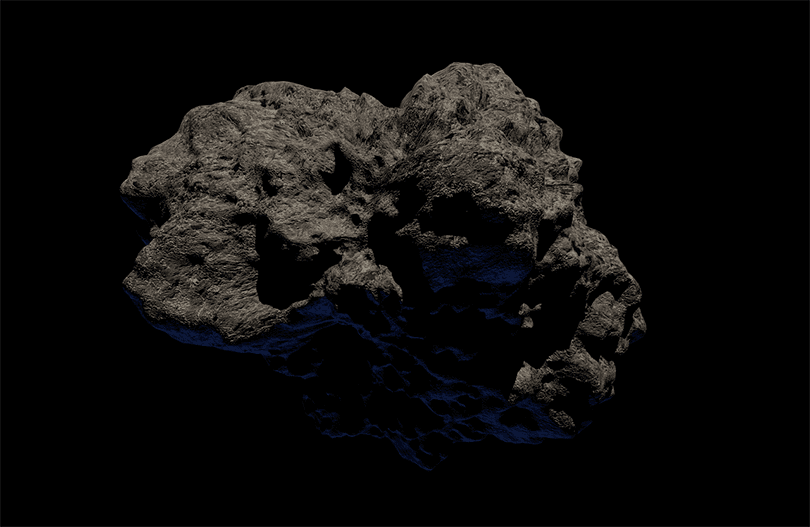
Don’t be alarmed if you’re confused by all the terms for rocks falling from space. Many people don’t know the subtle differences between a meteor, meteoroid, and meteorite. Here’s a quick guide to help:
Meteoroids
Meteoroids are basically space rocks that come from a comet or asteroid. They can vary in size from a grain of sand to several pounds. As long as they stay in space, they remain meteoroids.
Meteors
A meteoroid changes to a meteor as soon as it enters Earth’s atmosphere or the atmosphere of any other planet. When you see a “shooting star,” you see a meteor falling through the sky. As long as it doesn’t reach the ground, it remains a meteor (at least until it burns up).
Meteorites
A meteor that makes its way to the ground and stays intact when it hits the Earth is called a meteorite. Typically, less than 5% of the meteors that fall into Earth’s atmosphere become meteorites.
Is It Safe To Touch a Meteor?
Technically, you can’t touch a meteor as meteors never reach the ground. Meteorites, however, are safe to touch. Meteorites aren’t harmful to humans or any other form of life unless, of course, they fall on you. If you see scientists handling meteorites with gloves, it’s because they don’t want to contaminate the meteorite, not vice versa. Oils and microbes on human skin can change the composition of a meteorite, so touching them is not recommended. One way to handle a meteorite if you find one is with aluminum foil. Simply tear off a piece of foil and wrap it around the meteorite. You can lift and hold it without degrading or damaging its surface.

Do Meteors From a Shower All Travel In the Same Direction?
Meteors originating from the same comet or asteroid travel roughly the same direction. Also, they travel at about the same speed. So, for example, all of the meteors in the yearly Quadrantids meteor shower all move together in the same direction and at the same speed. The reason many believe they fall in different directions is due to the radiant: the central point where they originated.
However, this is an illusion of perspective from the ground and nothing more. If you were in orbit above the Earth, the meteors would all appear to be moving in the same direction. There are, however, so-called “sporadic” meteors that fall in their own unique direction and speed.

How Big Was the Meteor That Killed the Dinosaurs?
Why did the dinosaurs that had ruled Earth for centuries suddenly die out? Scientists believe it was a meteor (technically an asteroid) that landed in Mexico 66 million years ago. The location in the Yucatán Peninsula left behind what today is known as the Chicxulub Crater. It’s the 2nd-largest crater on our planet due to the asteroid being about 6 to 9 miles (10 to 15 kilometers) wide. The largest crater on Earth made by an asteroid is the Vredefort Crater in Free State, South Africa.
Final Thoughts
Are meteor showers dangerous? As we’ve seen today, no, they are not. It would be incredibly rare for a person to be hit or killed by a meteor, even though so many fall into the Earth’s atmosphere every year. The reason is that most meteors burn up in the atmosphere before ever reaching the ground. Some make it through, but the chance of being hit is still infinitesimally small. Scientists suggest you relax and enjoy the show if you’re lucky enough to witness a meteor shower.
Featured Image Credit By: Austin Schmid, Unsplash
Table of Contents
- What Causes a Meteor Shower?
- How Many Meteors Fall Onto Earth Every Day?
- Do Meteor Showers Have Names?
- What Is the Most Dangerous Meteor Shower?
- Can Meteors Damage Your Home and Property?
- Meteors, Meteoroids, and Meteorites. What’s the Difference?
- Is It Safe To Touch a Meteor?
- Do Meteors From a Shower All Travel In the Same Direction?
- How Big Was the Meteor That Killed the Dinosaurs?
- Final Thoughts
About the Author Greg Iacono
Greg Iacono is a self-taught writer and former chiropractor who, ironically, retired early due to back problems. He now spends his time writing scintillating content on a wide variety of subjects. Greg is also a well-known video script writer known for his ability to take a complex subject and make it accessible for the layperson.
Related Articles:
Can You Use Binoculars to Look At Stars? How to Choose the Right Pair
15 Crucial Facts About Ultraviolet Rays & the Sun
What Constellation Is Spica In? The Interesting Answer!
10 Interesting Leo Constellation Facts, Myths, and FAQs
15 Interesting Pegasus Constellation Facts, Myths, and FAQs
6 Interesting Sagittarius Constellation Facts, Myths, and FAQs in 2024!
What Are Constellations? Where Did They Come From?
8 Interesting Libra Constellation Facts, Myths, and FAQs
